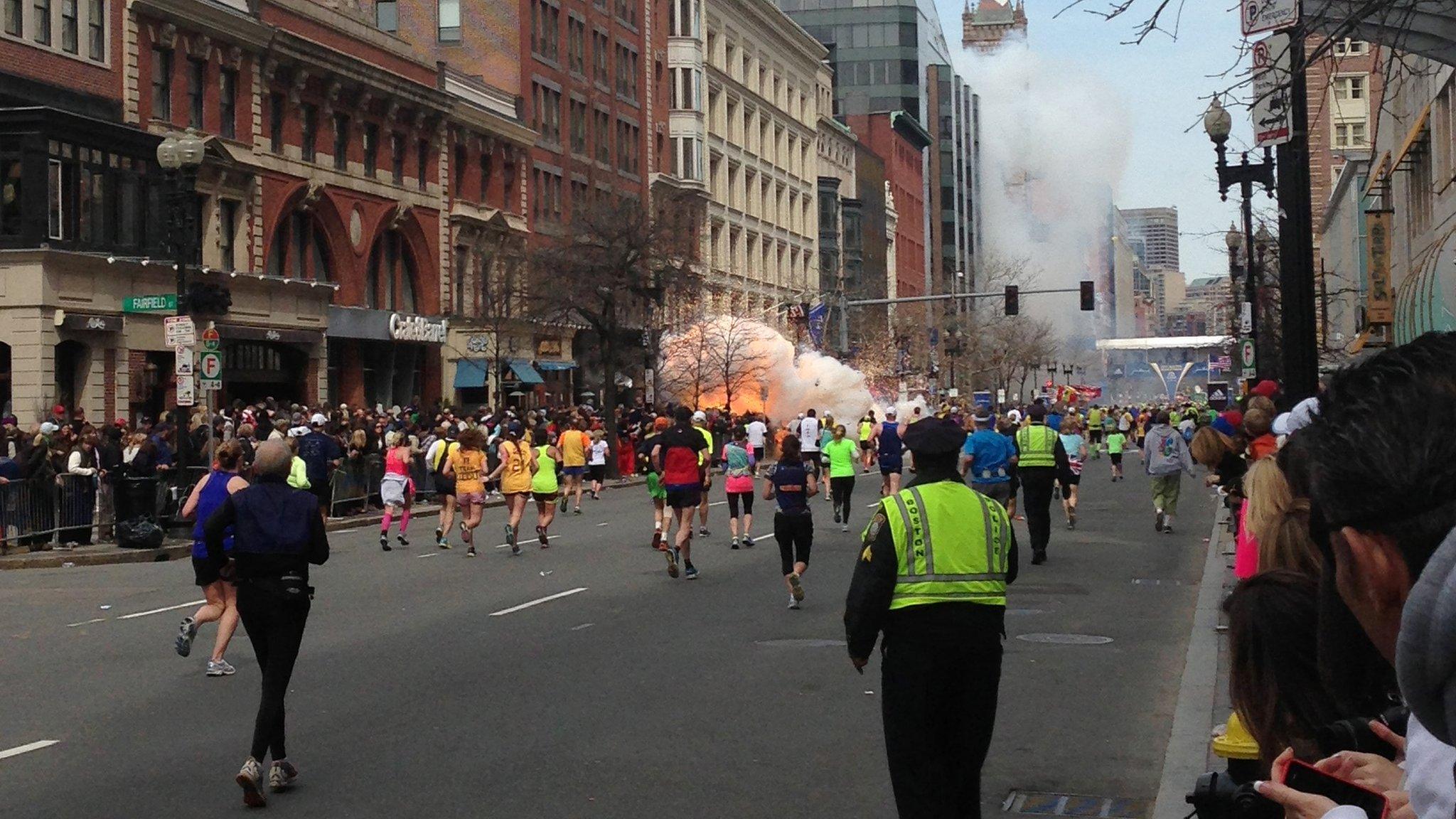San Bernardino shootings: Obama's call for unity is a tall order
- Published
President Obama outlines actions he thought ought to be taken to fight the evolving threat
On Sunday night, in his television address on the San Bernardino shootings and the "broader threat of terrorism", President Barack Obama sought to tell Americans what he was doing, what Congress should do and what the nation shouldn't do.
It was a tall order for a 12-minute speech, which reflects the complicated, fraught-with-peril position in which the president currently finds himself.
He was elected to help disentangle the nation from a Middle East war, and now a majority of the American public seems to support a new military incursion, external into that same region.
He ran for office as the face of a more diverse, inclusive country, and yet some of the Republicans who hope to replace him have called for a religious test for Syrian refugees, racial profiling of Muslim Americans and closing down "any place where radicals are being inspired", in the words of Florida Senator Marco Rubio, external.
'New phase' of terrorism
Mr Obama has claimed that the US is winning the war against al-Qaeda and compared its spin-off groups to a "JV team" - a term for the squad of lesser athletes in a high school sport programme. But a series of ideologically inspired attacks on US soil, along with the bloodshed in Paris last month, has Americans increasingly concerned.
For the first time Mr Obama acknowledged that the nation faces a pattern of violence inspired by "a perverted interpretation of Islam that calls for war against America and the West".
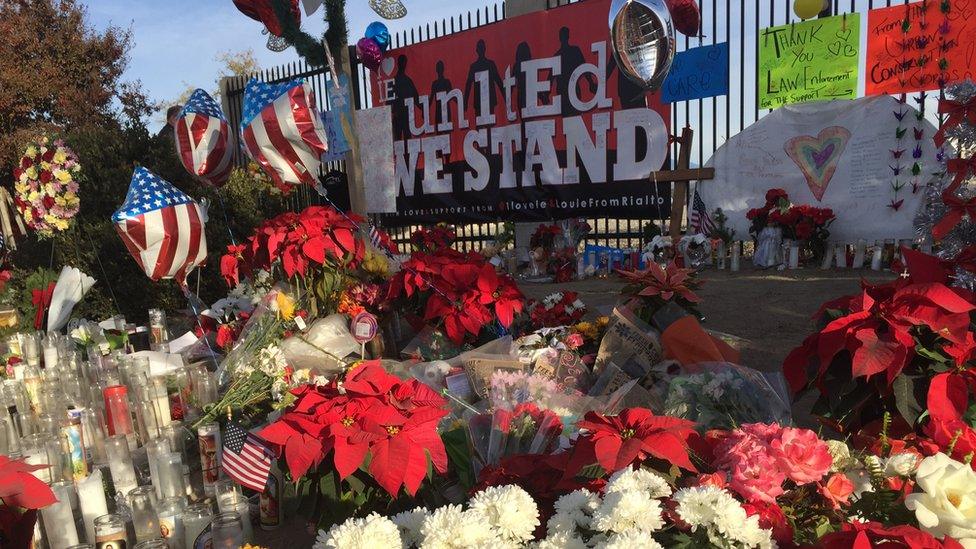
The president said the San Bernardino shooting is part of a change in strategy by Islamist groups
He drew a line connecting the shootings at Fort Hood, a Texas military base, the Boston Marathon bombings, an attack on an Army recruiting station in Chattanooga, Tennessee, and the recent bloodshed in San Bernardino and said it represents a "new phase" of terrorist threat to the US.
"As we've become better at preventing complex multifaceted attacks like 9/11," he said, "terrorists turn to less complicated acts of violence like the mass shootings that are all too common in our society."
Lax gun laws
That reference to the recent strings of US mass shootings - at a Planned Parenthood clinic in Colorado and a church in South Carolina, for instance - was not simply made in passing, as would be clear later in the president's speech.
After outlining the steps his administration was already taking to defeat the so-called Islamic State (IS), he spoke of what he sees as a real threat to US security - the nation's lax gun laws.
He said individuals on the federal "no-fly" list, which prevents suspected militants from boarding US aircraft, should be prohibited from purchasing guns.
"What could possibly be the argument for allowing a terrorist suspect to buy a semiautomatic weapon?" he asked. "This is a matter of national security."
More than that, however, Mr Obama called for Congress to pass legislation making it harder for every American to obtain "powerful assault weapons, like the ones that were used in San Bernardino".
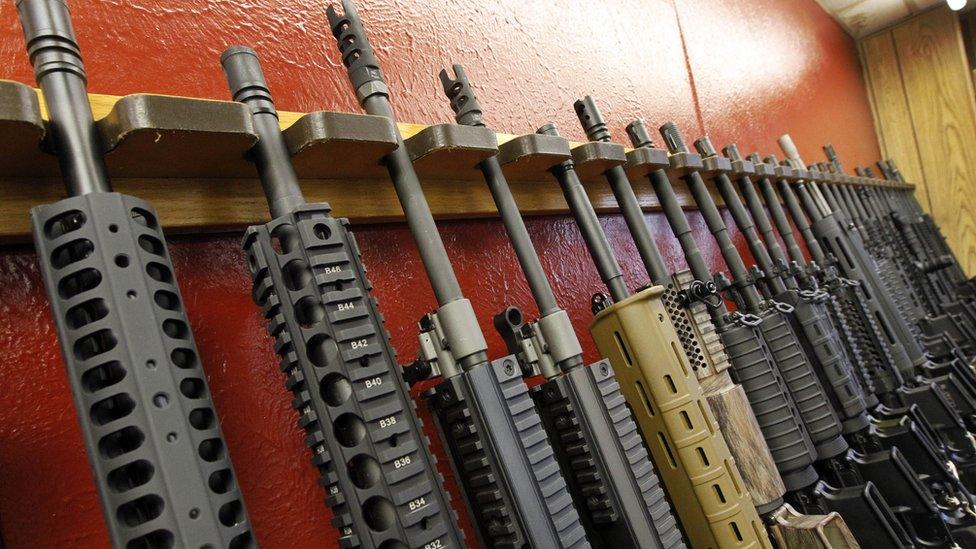
The president said it should be harder for would-be mass shooters to obtain powerful assault weapons
The president has often urged greater regulation of firearms, but now he is explicitly making the case in terms of safeguarding the nation against threats both at home and inspired abroad.
"The fact is that our intelligence and law-enforcement agencies, no matter how effective they are, cannot identify every would-be mass shooter," he said, "whether that individual was motivated by ISIL or some other hateful ideology".
Mr Obama's call comes the day after the New York Times issued a rare front-page editorial, external in which it proposed a ban on "military-style" semi-automatic rifles, prompting outcry from gun-rights groups.
One conservative commentator, Erick Erickson, tweeted, external a picture of the newspaper, riddled with bullet holes. The president's proposal will likely receive a similarly hostile reception.
"Millions of Americans have chosen to protect themselves and their families by purchasing a firearm," Republican presidential candidate Ted Cruz said in a statement, external released shortly before the president's speech. "This is their right; indeed protecting their families is their obligation."
'Coming together'
Mr Obama also asked Congress to provide him with a direct authorisation for the use of force to fight IS and for more thorough screening of visitors who currently enter the US without a visa to see if they've been to war zones, but those requests will likely be overshadowed by the gun-control issue - and questions about Mr Obama's overall IS strategy.
Adding fuel to the fire is the fact that the president's speech comes in the middle of a heated battle among Republicans for their party's presidential nomination.
For the better part of a year, many candidates on the right have been warning that IS presents a pressing national security threat that is being underestimated by the current administration.
After the Paris attacks and, in particular, after the San Beranardino shootings, some of the Republicans who hope to replace Mr Obama in the White House are claiming vindication.
"We need to come to grips with the idea that we are in the midst of the next world war," New Jersey Governor Chris Christie, another presidential aspirant, said on Friday.
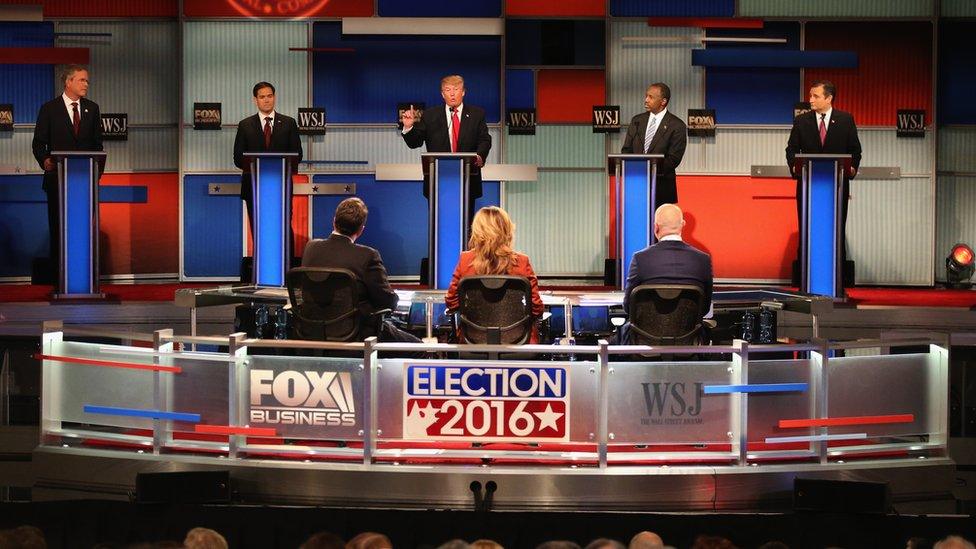
Some Republican presidential candidates have called for racial profiling of Muslim Americans
Mr Obama acknowledged the reality of the US electoral calendar toward the end of his Sunday night speech, after urging Americans not to "turn against one another" or frame the conflict as a war between the US and Islam.
"Even in this political season, even as we properly debate what steps I and future presidents must take to keep our country safe, let's make sure we never forget what makes us exceptional," he said.
"Let's not forget that freedom is more powerful than fear. That we have always met challenges, whether war or depression, natural disasters or terrorist attacks, by coming together around our common ideals as one nation and one people."
Donald Trump offered his brusque reply to the speech shortly after its conclusion.
"Is that all there is?" tweeted, external the current Republican front-runner. "We need a new president - FAST!"
Until the US presidential race concludes in just under 11 months, national unity is going to be hard to find.
- Published7 December 2015
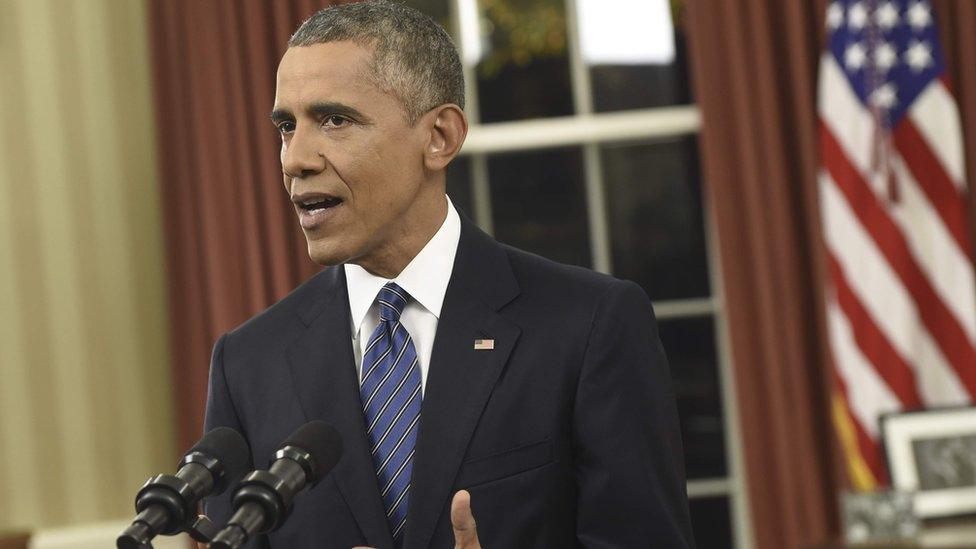
- Published11 December 2015
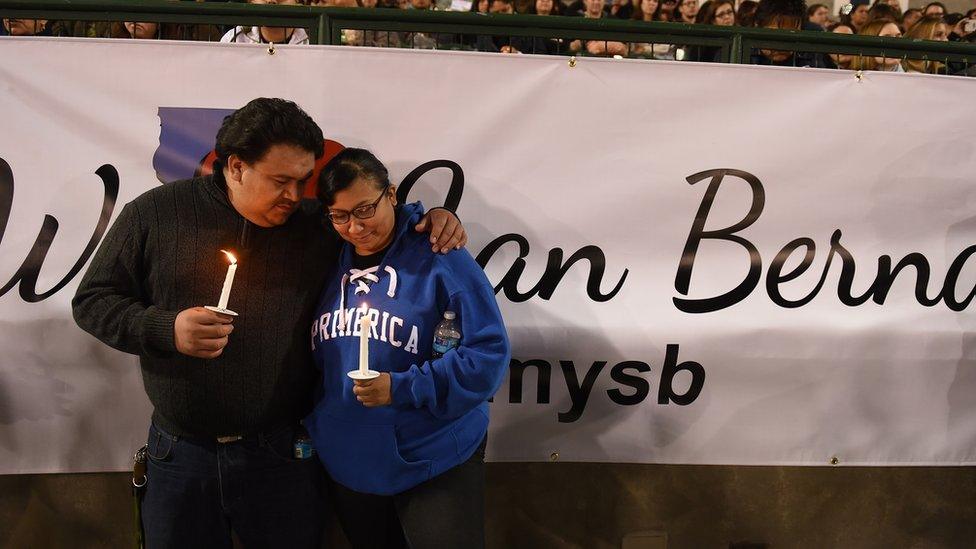
- Published5 December 2015
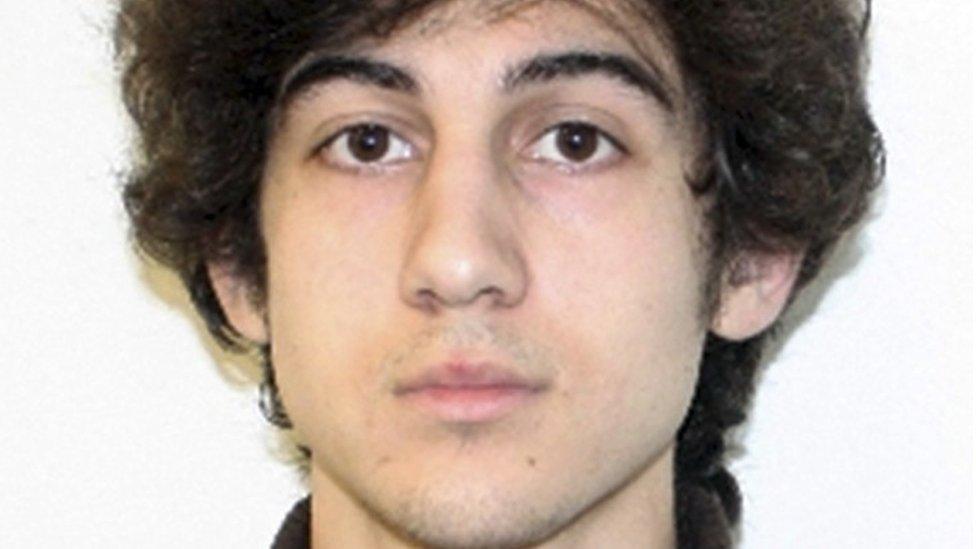
- Published22 April 2013
- Published16 April 2013
